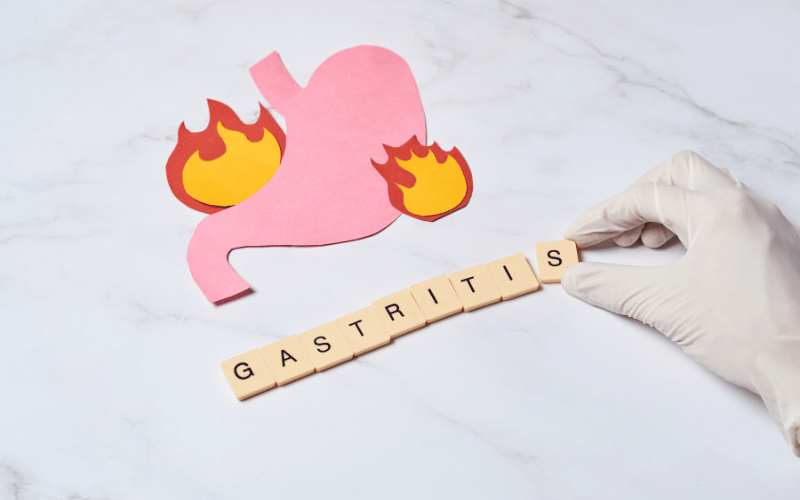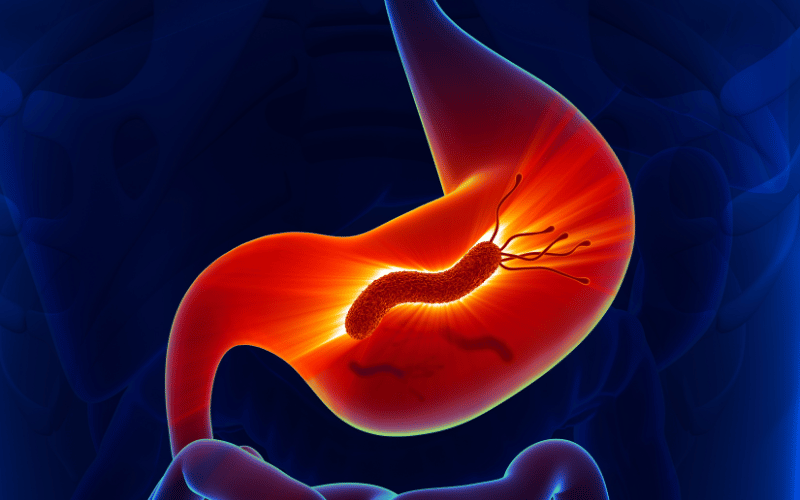Introduction: Uncovering the Top 5 Causes of Gastritis

There’s an agonizing discomfort that aches in your belly. Yes, we’re talking about gastritis. An inflamed stomach lining might not seem like a big deal until it disrupts your day and gives you those irritating symptoms. Bloating, indigestion, and a relentless ache are just the tip of the iceberg when it comes to this prevalent digestive condition. But hey, you’re not alone in this. Gastritis affects a vast number of people, making it a common yet often misunderstood ailment.
Why is it so crucial to focus on the root causes of gastritis? That’s a no-brainer! Knowing what ticks off your stomach will put you in the driver’s seat. We’re talking about steering clear of painful flare-ups and those late-night Google searches for quick relief. Whether you’re new to the gastritis game or a seasoned player, understanding its causes can be a game-changer for your overall well-being.
Now, why should you keep reading? Because the good stuff is coming up. We’re about to reveal the top 5 causes of gastritis, but not in a dull, medical textbook fashion. We’re diving deep into each cause, unearthing facts that will give you that “Aha!” moment. In the process, you’ll gain the tools to build a gastritis-free life.
If you’re a frequent flyer on the gastritis struggle bus, you already know that half-baked information won’t do you any good. You need cold, hard facts, laid out in a way that’s easy to understand. And that’s precisely what you’re going to get. This article is your one-way ticket to understanding the leading factors behind your gastritis.
Ready to get the inside scoop? Stick around as we delve into the top causes of this bellyache-inducing condition, arming you with knowledge and actionable steps. Prepare to lift the veil on gastritis and regain control of your life.
1. Helicobacter pylori Infection: The Invisible Invader

Helicobacter pylori is a bacteria most commonly known for its role in causing stomach ulcers. What’s fascinating is that this tiny organism can live in your stomach without even causing symptoms for years. It’s a sneaky intruder, using its spiral shape to burrow into your stomach lining and disrupting the mucous barrier that protects against stomach acid.
While Helicobacter pylori itself may not always cause immediate symptoms, it triggers a chain reaction. The stomach lining becomes increasingly vulnerable, leading to inflammation, or what’s commonly known as gastritis. Though the bacteria is often contracted in childhood, it remains under the radar, not causing issues until well into adulthood for many people.
While not everyone infected with H. pylori will develop gastritis, it remains one of the top culprits. Testing for this bacteria involves a breath test, blood test, or stool sample, but it often comes as a surprise to many people when they test positive. No one expects a tiny bacteria to be the root of so much discomfort.
Eradicating H. pylori typically involves a course of antibiotics. It’s a strategic attack against this unwelcome guest, aimed at clearing the bacteria from your system. Post-treatment, many people find significant relief from their gastritis symptoms, which often goes to show how significant this tiny bacteria can be in disrupting digestive health.
The presence of H. pylori also raises questions about hygiene and the importance of safe food and water consumption. The bacteria are often transmitted through contaminated food and water, making it as much an issue of public health as it is individual well-being. (1)